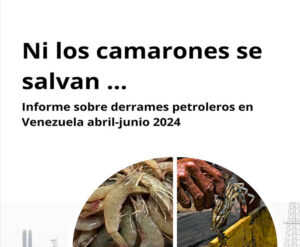
Bringing Children to the center of climate action
Basis for incorporating a human rights framework in the protection of children and adolescents from climate change in Venezuela Executive summary Climate Change is a global threat that undermines many of the rights of children and adolescents. The vulnerability of this age group stems from their developmental stage, increased susceptibility to disease, dependence on adult care, and a limited capacity to circumvent hazards and impacts. For this reason, different international organizations have continuously warned about the urgency of establishing policies to protect the rights of children and adolescents in the context of climate change, with special attention to the most vulnerable groups. This report aims to contribute to knowledge about the impact of climate change on the human rights of children and adolescents, both globally and in the specific context of Venezuela. It will also examine the measures implemented by the Venezuelan State in order to develop effective strategies for their protection in the context of the climate crisis affecting the country. The following are the main results obtained from this study: The adverse effects of climate change increase the susceptibility of children and adolescents to physical, psychological, and social harm attributable to socio-natural disasters; they increase the risk of vector-borne and heat-related diseases or conditions, pollution and malnutrition. Climate change also exacerbates pre-existing problems such as poverty and social conflict, also driving human displacement. In the case of Venezuela, the lack of public information makes it difficult to assess the situation of children’s rights in relation to climate change.








